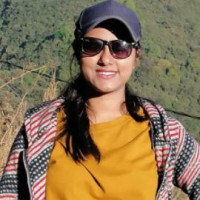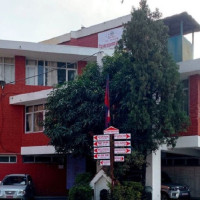- Tuesday, 3 March 2026
Badal archiving personalities, culture, history for 14 years
Kathmandu, Mar. 31: Archiving and documentation play a crucial role in preserving history and are essential for research and study.
However, archiving remains largely unnoticed in Nepal, and those working in this field receive little recognition.
Despite this, a few dedicated individuals have been diligently preserving records related to notable personalities, cultures, and various aspects of history.
Among them, Sitaram Badal has been personally engaged in archiving, research and documentation for the past 14 years.
His archive includes contributions from over 250 historians, researchers, experts, linguists, musicians, filmmakers, theatre artists, poets, educators, intellectuals and writers in Nepal.
His collection consists of interviews, magazines, audio recordings, videos, photographs, books, diaries, news articles and essays.
Some of the prominent personalities documented in his archives include Indian singer Asha Bhosle, musician Shantanu Moitra, and Nepali figures such as the late National Poet Madhav Prasad Ghimire, the late Centenary Literary Figure Satya Mohan Joshi, the late first female singer of Radio Nepal Ranu Devi Adhikari, the late first singer and dramatist of Radio Nepal Hari Prasad Rimal, the late senior folk singer LP Joshi, the late Bhedi Kharke Saaila, the late singer and artist CP Lohani, the late singer Urmila Kumari Shrestha, the late singer PL Shrestha, the late Bhrigu Ram Shrestha, senior singer and actress Sunita Regmi, senior dance director Bhairav Bahadur Thapa, senior ophthalmologist Dr. Sanduk Ruit, and many others. All these records have been digitised.
Badal said, “My archive currently holds over eight terabytes (8,000 GB) of digital materials, and new content is being added daily. The main challenge is managing these records. These materials will serve as important study resources for future generations.”
Badal holds a master’s degree in English literature and has received several national-level honours, recognitions, and awards.
He is also skilled in photography, videography, documentary filmmaking, editing and information technology.
He said, “Archiving is not something one can do without passion. As I conducted research in various fields, I started collecting materials, and over time, this archive took shape. The main challenge now is how to preserve it. So far, I have been sustaining this project with personal investment. Universities from the USA and Canada have shown interest in my work, and I have collaborated with researchers on certain topics.”
According to Badal, many people in Nepal still do not fully understand the importance of archiving and documentation. As a result, the country often has to rely on information presented by others.
“Almost everyone today uses mobile phones. By simply using a phone’s camera or a scanning app, we can preserve a lot of important materials,” he said.
“Through archival efforts, we can protect history and make it easily accessible for future generations. What we need is the willingness to do it. Everyone must pay attention to archiving and documentation,” he added.

















